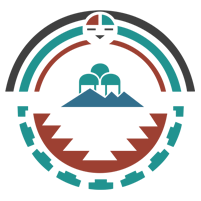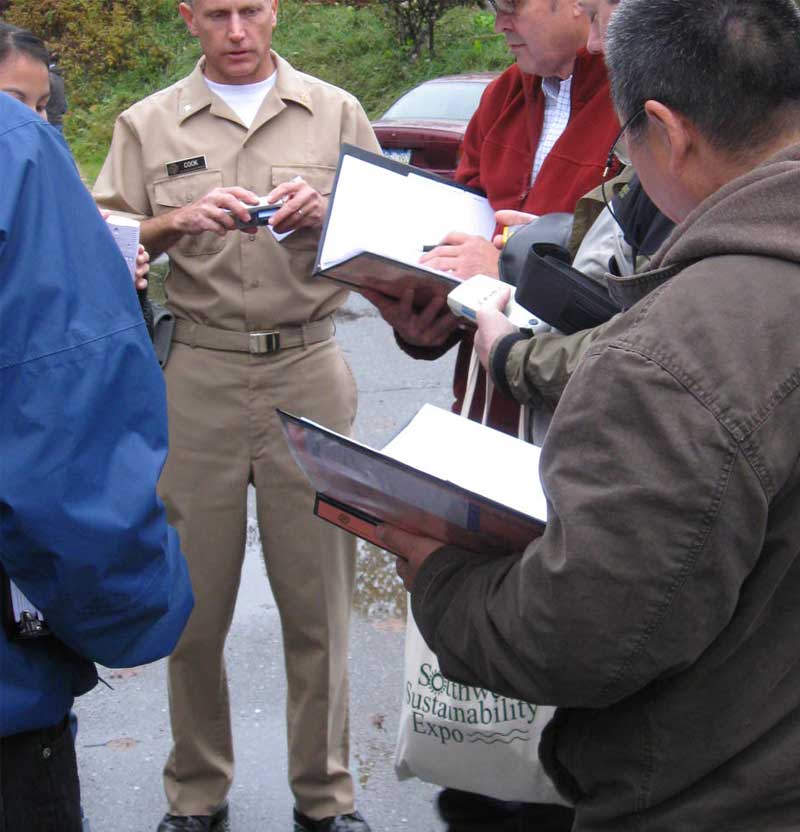Educational Services
The Environmental Education Outreach Program is part of the Institute for Tribal Environmental Professionals (ITEP) at Northern Arizona University. The purpose of the Environmental Education Outreach Program (EEOP) is to interest Native American students in environmental careers and to assist schools in improving environmental science literacy.
Indoor Air Quality (IAQ) Building Assessments:
The EEOP program has IAQ Kits and staff available to work with students and teachers to complete an IAQ assessment of their school building. The instruments in the IAQ Kit facilitate air quality measurements such as carbon dioxide, radon, carbon monoxide, relative humidity, air movement, surface temperature, moisture, etc. The staff will also help students and teachers use the USEPA IAQ Tools for Schools kit to identify potential air quality issues.
There are three key components of the IAQ Building Assessments:
- Science education (Students learn basic scientific principles about air and air pollution.)
- Science (Students are doing science by taking basic scientific measurements on air quality and interpreting the information collected.)
- Student learning and health (Students will make recommendations that will improve the health of all building occupants and improve the conditions for learning.).
The data and observations collected during the Building Assessment will be provided to the school administration for their information and action. This is an educational program, not a regulatory program. Only the school staff receives the assessment reports.
The building assessments can be done in a variety of formats. The one requirement is that teachers and students from the school district be involved in the assessment; the EEOP staff does not do the assessment for your school, the staff helps the teachers and students do the assessment.
Engineering Outreach Program (EOP):
The EEOP program has Engineering Education Kits and staff available to work with students and teachers to increase awareness of opportunities in engineering. Although engineering is applied science, mathematics, and technology many students are not aware of the career opportunities for this fascinating field. The purpose of the Engineering Outreach Program is to increase awareness of engineering as a potential career and help students understand how they can prepare for an exciting career in engineering.
The EEOP staff is available to work with teachers and students to develop an understanding of engineering and to encourage students to consider engineering as a career option.
Water Education and Outreach:
The purpose of the Water Education and Outreach Program is to increase hydrological literacy and spark interest of students in hydrological careers. The EEOP staff will provide learning activities and demonstrations of various water curriculums, including GLOBE and Project WET. Some lessons and activities available are:
- Water quality
- Ground water
- Drought and water conservation
- Water cycle
We are currently experiencing a drought in the Southwest. We want all citizens to be aware of the issues associated with the drought and help with protection and management of our water resources.
The EEOP staff also has water education supplies available on a loan basis.
Air Quality Education:
Air pollution comes from many different sources such as factories, power plants, dry cleaners, cars, buses, trucks and even windblown dust and wildfires. Air pollution can threaten the health of human beings, trees, lakes, crops, and animals, as well as damage the ozone layer and buildings. Air pollution also can cause haze, reducing visibility in national parks and wilderness areas. The EEOP staff is available to work with students, educators, and tribal professionals to create more awareness of the career opportunities in protecting human health and ecosystems from air pollution. Some lessons and activities available are:
- Air quality and the Global Positioning System (GPS)
- Protection of air quality through renewable energy
- Global warming and climate change
Communications:
The EEOP staff offers a variety of communications. The EEOP website was recently updated and we are expanding the information available via the website. We also have a listserve for sharing information on internships, programs, scholarships, as well as EEOP services and projects.
If you would like to join the listserve send an email to Mansel.Nelson@nau.edu.


